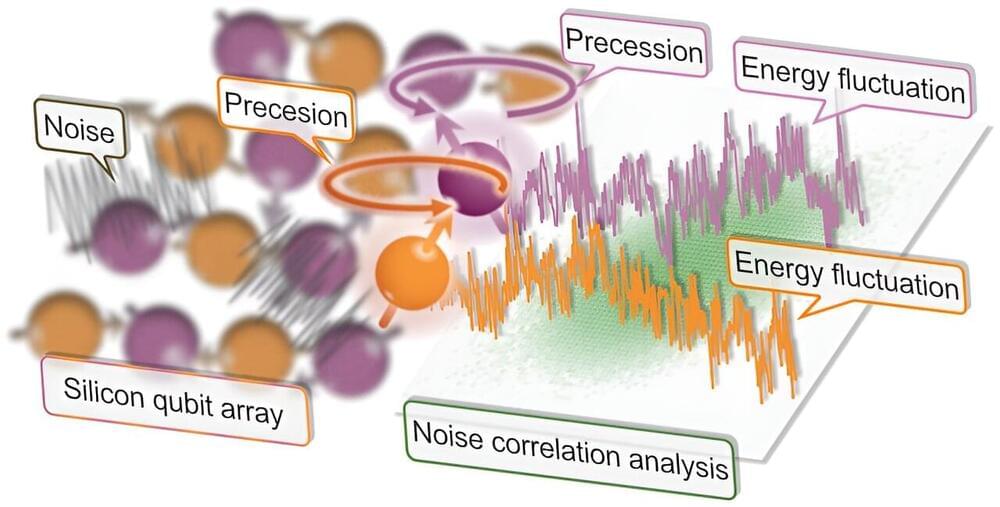To build highly performing quantum computers, researchers should be able to reliably derive information about the noise inside them, while also identifying effective strategies to suppress this noise. In recent years, significant progress has been made in this direction, enabling operation errors below 1% in various quantum computing platforms.
A research team at Tokyo Institute of Technology and RIKEN recently set out to reliably quantify the correlations between the noise produced by pairs of semiconductor-based qubits, which are very appealing for the development of scalable quantum processors. Their paper, published in Nature Physics, unveiled strong interqubit noise correlations between a pair of neighboring silicon spin qubits.
“A useful quantum computer would practically require millions of densely packed, well-controlled qubits with errors not only small but also sufficiently uncorrelated,” Jun Yoneda, one of the researchers who carried out the study, told Phys.org. “We set out to address the potentially serious issue of error correlation in silicon qubits, as they have become a compelling platform for large quantum computations otherwise.”
